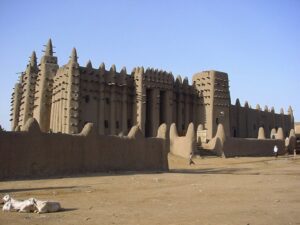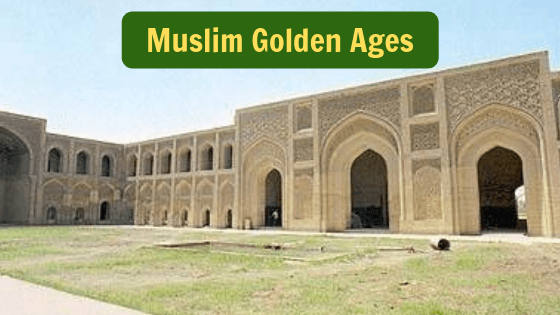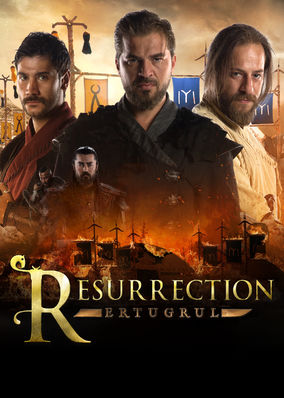This is an extract from my latest book Productivity Principles of ʿUmar II. You can learn more about the book here.
The Shūrā Committee of ʿUmar II
When ʿUmar II was governor of Medina, he surrounded himself with a panel of pious and experienced consultants. When he became king, he maintained this system, and once again put together a team of experts to consult with on every major decision.
The practice of consulting experts has always been a recommended practice for Muslims. In the Quran, there is an entire chapter titled the Chapter of Shūrā (Consultation) which includes the verse, “And their affairs are decided through consultation among themselves,”[1]
Prophet Muhammad (s) said, “If your brother requests your consultation, let him give counsel.”[2] It was also the practice of the Rightly Guided Caliphs to have a committee of consultants to discuss all important issues. In Islam, such committees are called shūrā committees and are very important for success in any project.
ʿUmar II wanted to emulate the leadership style of the Prophet Muhammad (s) and the Rightly Guided Caliphs. Based on their example, he set up shūrā committees to consult whenever he was in a position of power. He first established such a committee when he was governor of Medina. His committee at that time included ten of Medina’s leading scholars. This included ʿUrwa b. al-Zubayr, ʿUbaydullāh b. ʿAbdullāh b. ʿUtbah, Abū Bakr b. ʿAbd al-Raḥmān, and many other leading scholars from the second and third generation of Muslims.[3]
This council was given several tasks, which included giving ʿUmar their opinion on any action he planned to take, informing him of any misconduct in his region, and advising him on matters of policy. Based on the advice of this council, he made several improvements to the social structure of Medina. This resulted in a large number of people migrating to Medina during his short reign.[4]
When he was appointed caliph of the Muslim world, ʿUmar again set in place a shūrā council to guide his decisions. This committee included leading scholars from across the Muslim world including Sālim b. ʿAbdullāh, Muhammad al-Qurṭubī, Rajāʾ b. Ḥaywa and Yazīd b. al-Muhallab.[5]
Surrounded by such exemplary individuals, and in contact with various others throughout the Muslim Empire via letters, ʿUmar’s policies and decisions were guided by sincere advice, experience, and piety. This led to some of the most important decisions that shaped the history of the Muslim world.
Because of the wise and righteous advice of these consultants, ʿUmar II was able to set up various long-term projects that benefited the Muslim community for centuries.
Some of the decisions that resulted from consultation include the removal of various unjust taxes, increasing the salaries of religious scholars, sending scholars to teach Islam to the newly conquered regions, and the compilation of hadith into books. Each of these decisions played an important role in improving the lives of the Muslim community.
ʿUmar II’s High Regard for Consultation
ʿUmar II once said, “Nobody is entitled to be a judge unless he has five qualities. He must be chaste, gentle and patient, knowledgeable of the past, accustomed to seeking the consultation of others, and indifferent to criticism from others.”[6]
Among the five most crucial qualities of a judge, ʿUmar II included seeking consultation. A judge cannot always rely on his own opinion or view of a matter, and neither can he always trust his own ability to remain unbiased. A just judge will seek the opinion of righteous experts before making a decision.
ʿUmar II advised his governors, judges, and contemporary scholars to seek consultation on every important issue.
He once wrote to ʿUrwah a letter in which he mentioned, “You have written to me asking about the practice of issuing legal rulings and settling people’s dispute. That heart of the judicial practice is adherence to what you find in the Book of God, the issuing of rulings based on the example set by the Messenger of God as well as the judgments handed down by the Rightly-Guided leaders, and consultation with the learned whose points of view can be trusted.”[7]
In these two quotations, we can see the high status ʿUmar II gave to consultation. He considered it among the most important sources of decision making, policy making, deduction of laws, and application of principles. He would not make any major decisions without consulting experts on the topic, and he advised others to do the same.
Consultation is one of those principles that ʿUmar both practiced and preached, and it is one of the most important principles that led to his success in various fields.
The Benefits of Consultation
There are many benefits of seeking the counsel of experts. Ahmad al-Raysuni, in his book al-Shūrā, lists ten major benefits of consultation.
These are:
- Choosing the most correct opinion
- Protecting the decision from bias and desire
- Preventing tyranny
- Promoting humility
- Giving people their due
- Promoting an atmosphere of freedom
- Improving one’s thinking and planning capabilities
- Building support structures
- Promoting unity and goodwill
- Increasing the ability to deal with unwanted consequences.[8]
Each of these is important for achieving maximum productivity from one’s goals. When we consult others, we increase the chance of arriving at the correct opinion and therefore increase our chances of succeeding at our goals.
Sometimes when we make decisions on our own, these decisions are clouded by bias or desire. Seeking the counsel of someone unbiased helps us see past these distortions and helps us arrive at a better conclusion. In doing so, we also protect ourselves and others from any unintentional tyranny that our biased opinions may cause.
It takes humility to seek the counsel of others. This makes consultation an act that strengthens humility and reduces arrogance. This increases the chance of success, as humble people are far more likely to excel than the arrogant.
Consultation with specialists actively demonstrates appreciation and respect for the experts. This is a way of giving people their dues, promoting an atmosphere of freedom and discussion, as well as promoting unity and goodwill among people.
The more we discuss our ideas with others, our thinking and planning capabilities grow accordingly. Each discussion teaches us a new way of looking at things and refines our thinking process.
Finally, consultation is a team task. When you consult others, they become invested in your outcome, which gives you a stronger support structure and an increased ability to deal with any obstacles or problems that may arise.
These are just ten benefits of consultation.
To continue reading this chapter, and to access the full eBook, hit the ‘Get It Now’ button and follow the instructions that pop up:
Get It Now[1] Quran 42:38
[2] Ibn Mājah 3747
[3] As-Sallabi, ʿUmar Bin ʿAbd al- ʿAzīz, pp. 77-78
[4] Ibid. pp. 78-81
[5] Ibid. pp. 115-118
[6] Ibn Ḥajar al-ʿAsqalānī, Fatḥ al-Bārī, vol. 15, p. 50
[7] Ibn ʿAbd al-Barr, Jamiʿ Bayan al-ʿIlm, vol. 2, p. 30
[8] Al-Raysuni, al-Shura, pp.24-40







